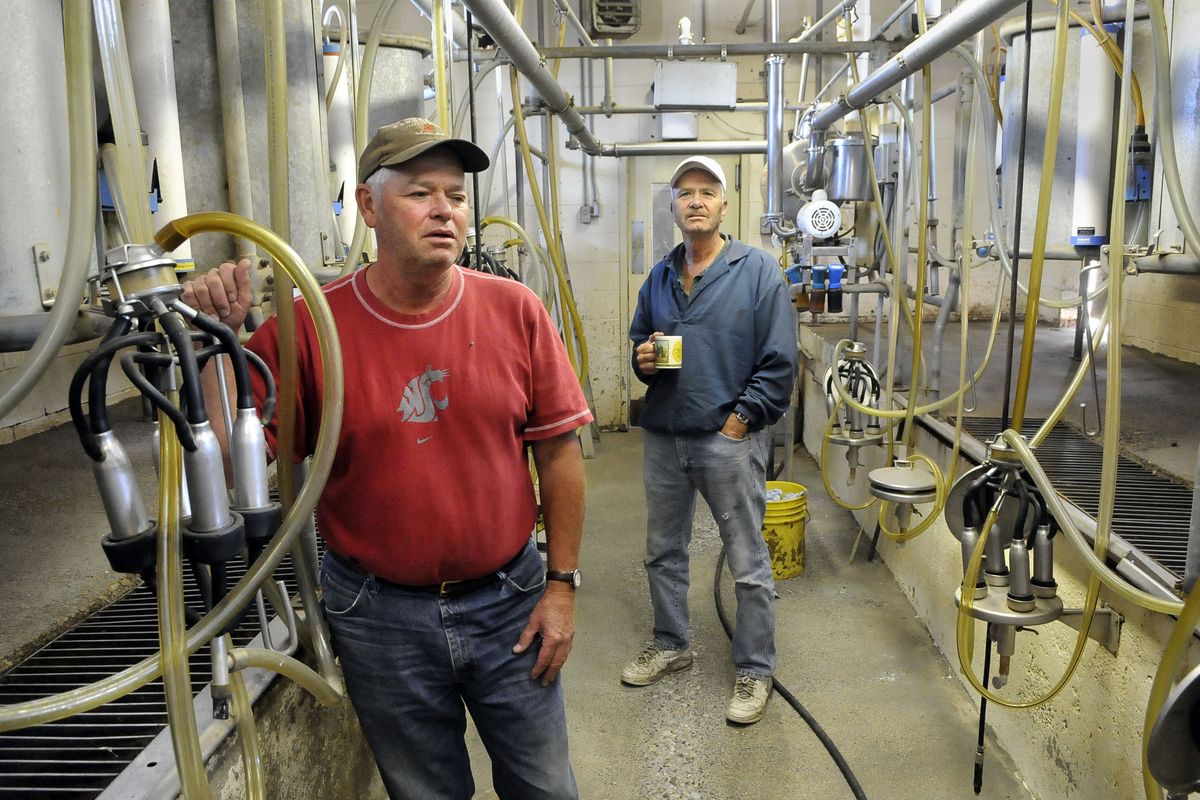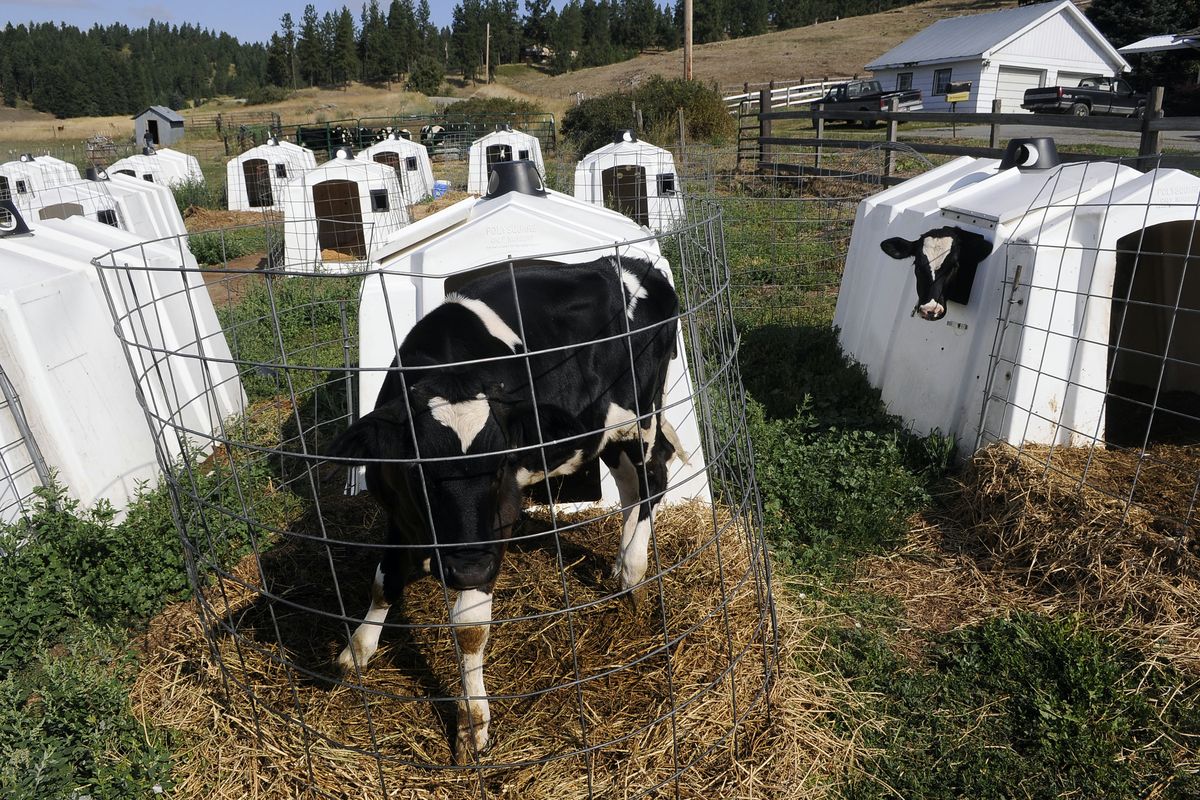Family of dairy farmers closes its business
Courchaines considering future in a recession-plagued industry
Stan Courchaine, left, and his brother, Steve Courchaine, milk their cows for the last time Friday on their farm in Spokane Valley. The family operation sent its cows to slaughter as part of a national program to cut milk supplies and raise prices; only a few cows remained. (Dan Pelle / The Spokesman-Review)
The Courchaine family has quit the dairy business.
Four brothers ran the dairy on North Harvard Road, the last in Spokane Valley, where small farms and fruit orchards once dotted the land and fed a growing region.
The Courchaines’ herd of about 140 cows was shipped to a slaughterhouse in early June as part of a national program designed to curb milk supplies and pump up prices.
Many dairies across the country are struggling as milk prices fall and costs keep climbing.
“We just couldn’t win, so we got out,” Stan Courchaine said as he looked across the remnants of an operation that had rewarded hard work with a decent living for decades.
The Courchaines are counted among Spokane Valley’s pioneering families. The dairy was started in the 1940s by Bob Courchaine. In the 1970s his sons Ken, Clint, Steve and Stan made a go of it for their own families.
With no one in the family interested in taking over, the brothers announced several years ago they would close the dairy chapter of the family’s history. But the end came faster than the youngest brothers, Steve and Stan, would have liked.
They still lease land from Jacklin Seed Co. to grow alfalfa. Steve and Stan say they plan to run a small cattle operation, buying young steers, fattening them on homegrown hay and feed corn, and selling them to larger feed lots that will fatten the steers further for eventual slaughter.
They wonder aloud if it’s wise. “Who the hell knows anything anymore,” Steve said.
At least at first, doing business around the globe worked well for dairymen like the Courchaines.
The rising incomes of people in other countries meant they could drink more milk and eat processed foods that included dried milk and cheese ingredients.
As that demand grew, drought gripped Australia and New Zealand, both big dairy countries.
The sum of those economic conditions and weather patterns equaled opportunity for American dairymen. They added cows, and soon the export market accounted for about 12 percent of sales, said Steve Matzen, general manager for the Washington Dairy Products Commission.
“The prices were pretty good,” Matzen said, “and the net profits were generally good.”
The storyline then mirrors what has happened to so many industries during the past year. The world economy ground to a halt. Buying trends retreated. The Australian drought lifted to usher in the return of a country that is a tough competitor.
Here’s a measure of the fallout: According to a special program to cut the number of milk cows, during the past nine months, more than 238,000 dairy cows have been “retired,” or shipped to slaughter. The amount of milk pulled from the market is about 3.8 billion pounds.
“Sad? You bet it is,” said Steve Courchaine. “This whole thing has emotionally tugged at us.”
Like elsewhere, most Northwest dairies sell into cooperatives, said Jason Kelly, spokesman for the Washington State Department of Agriculture.
For the nine remaining dairies in Spokane County, the five-state cooperative is called the Northwest Dairy Association, which brands and sells the milk as Darigold.

